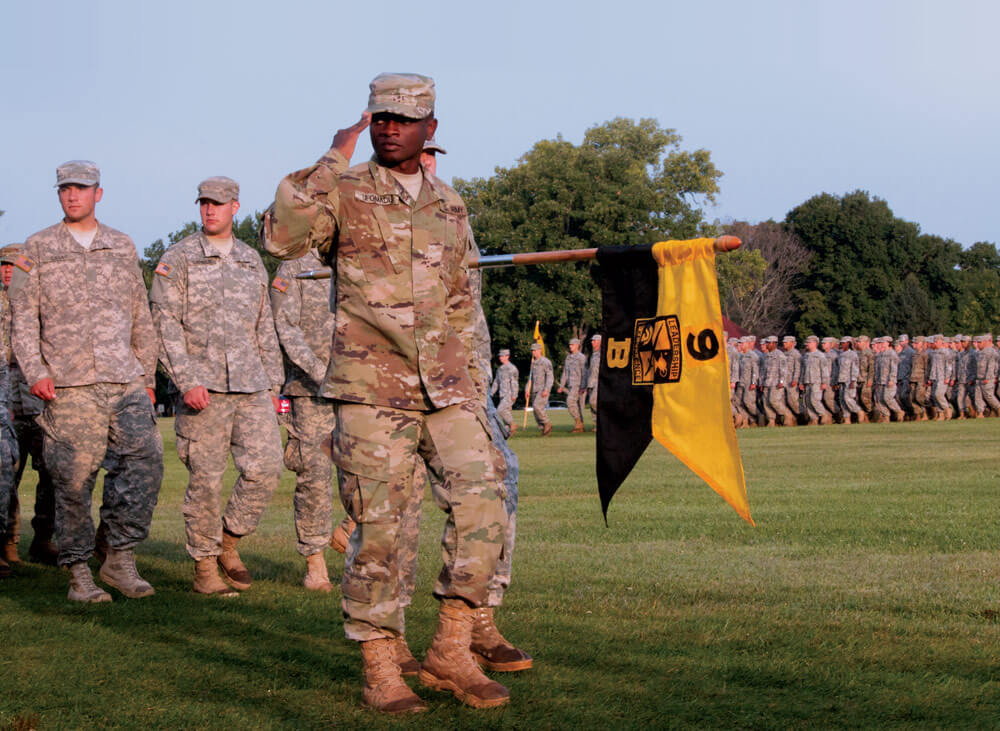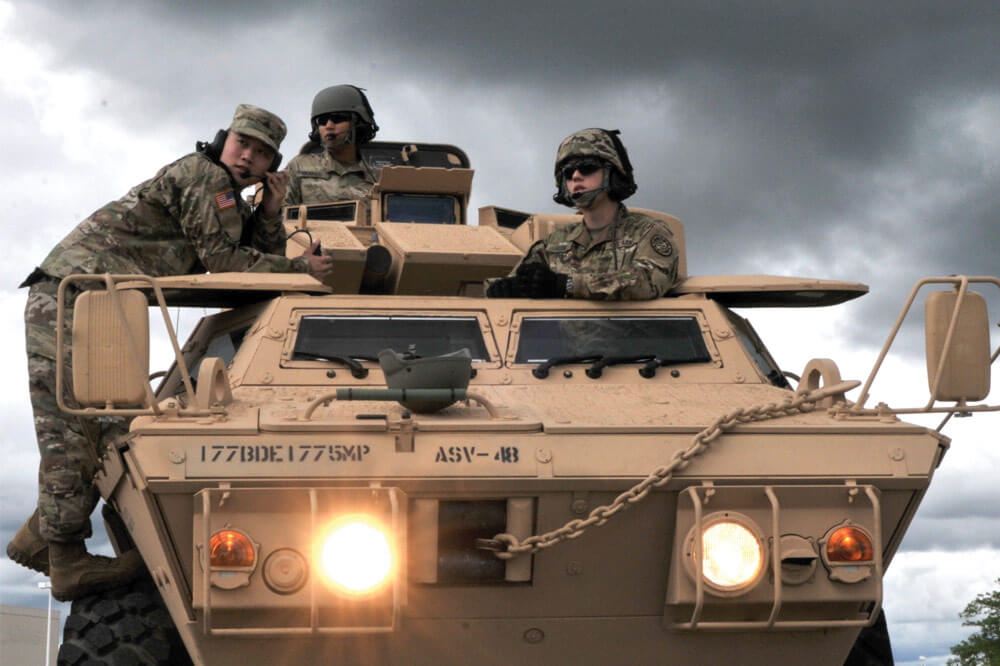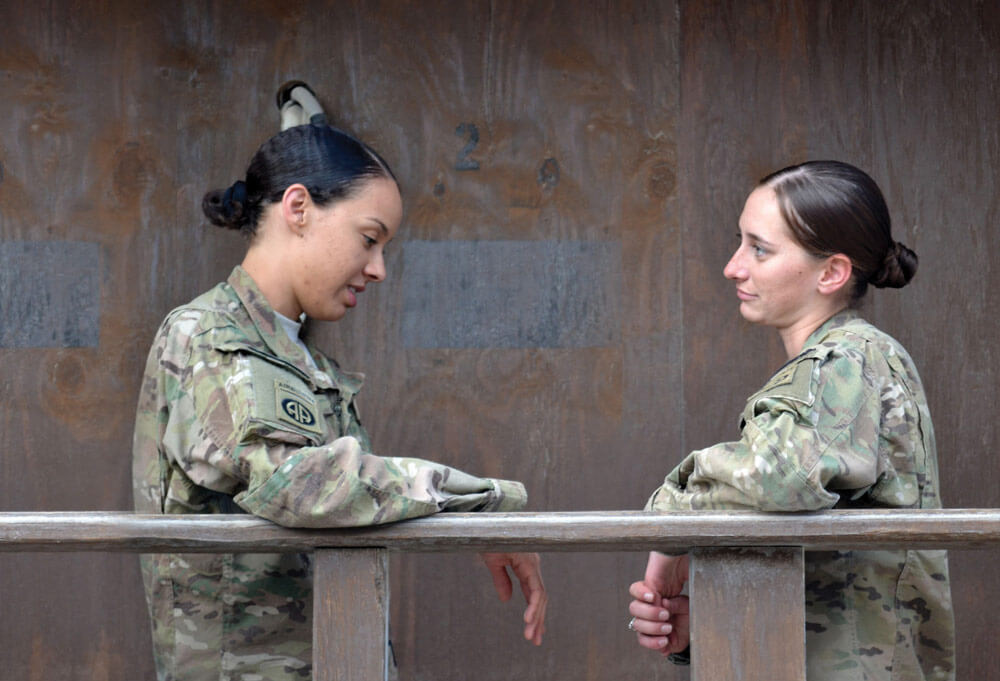It is not at all uncommon for young college students to have uncertainty about their ultimate career paths. For many students still standing at this all-too-common crossroads, especially those who have been exposed to military life by a Family member, the idea of a commission in the Army can be an intriguing possibility. For college students entering their sophomore or junior years, Cadet Summer Training through the Reserve Officers’ Training Corps (ROTC) Basic Camp offers an opportunity to explore the option of a military career by giving them a super-concentrated taste of what it’s like to be an Army Soldier.
Basic Camp, held at Fort Knox, Ky., is the ROTC’s intense four-week introduction to Army life and leadership training. Successful graduation allows Cadets to join the ROTC program at their college and start at the third-year level of the four-year program.
Cadet Summer Training brought over 8,000 Cadets through Basic and Advanced Camp this past summer.
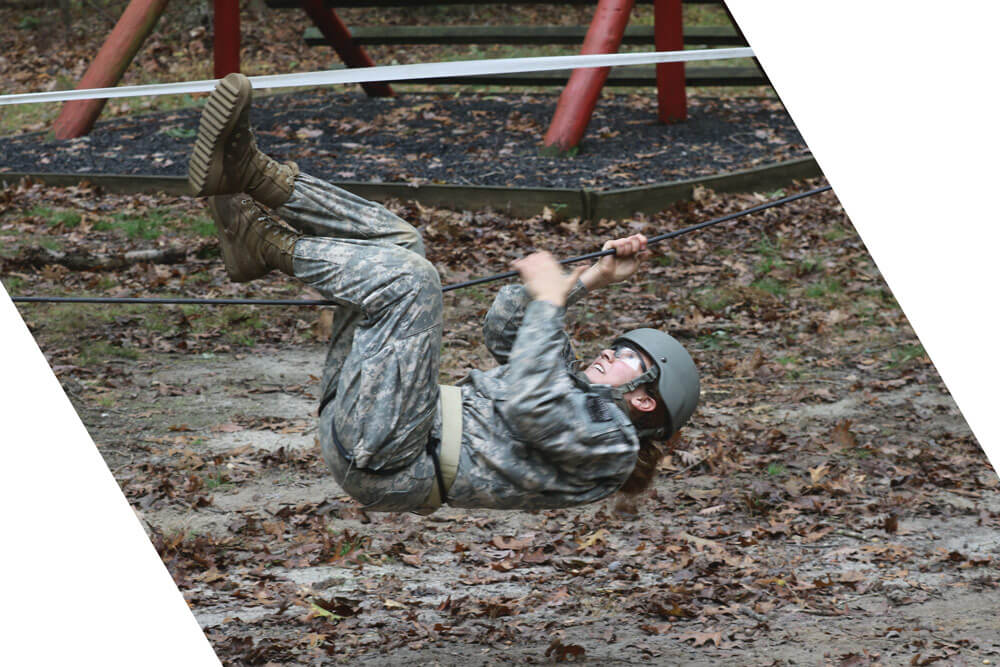
Cadets spent their first few days of Basic Camp learning the ins and outs of Army life under the supervision of experienced drill sergeants. The regimen consisted of several training events beginning with the Army Physical Fitness Test. This test required the Cadets to perform push-ups, sit-ups and the two-mile run.
Next, Cadets were introduced to exercises that required them to work in small-group teams, beginning with an obstacle course. This course teaches Cadets how challenges that seem impossible to accomplish as an individual can be successfully achieved when working as part of a team. In the Team Development Course (TDC), team members had 10 minutes to plan how they were going to meet a specified challenge. They then had 20 minutes to execute the plan.
“By presenting a problem to the squad in the form of an obstacle, one person cannot do it by themselves,” said cadre member SFC William Richards from West Virginia University. “But when you combine all of the different personalities, it creates the cohesiveness of a team.”
With time, Cadets improved their teamwork on the obstacle courses, learning how to effectively communicate and accomplish what was needed by working together.
“With every exercise, we kept building our communication skills and became more effective,” said Cadet Alexis Fitzgerald of Bravo Company, First Platoon, from Princeton University. “We were arguing less and less, and putting people in positions to be effective.”
While the TDC taught the Cadets about teamwork, there were still more lessons to be learned. The Land Navigation course is designed to train Cadets to navigate from one point to another using just a map, a compass and a protractor. The two-person teams are given four hours to find four points on the course.
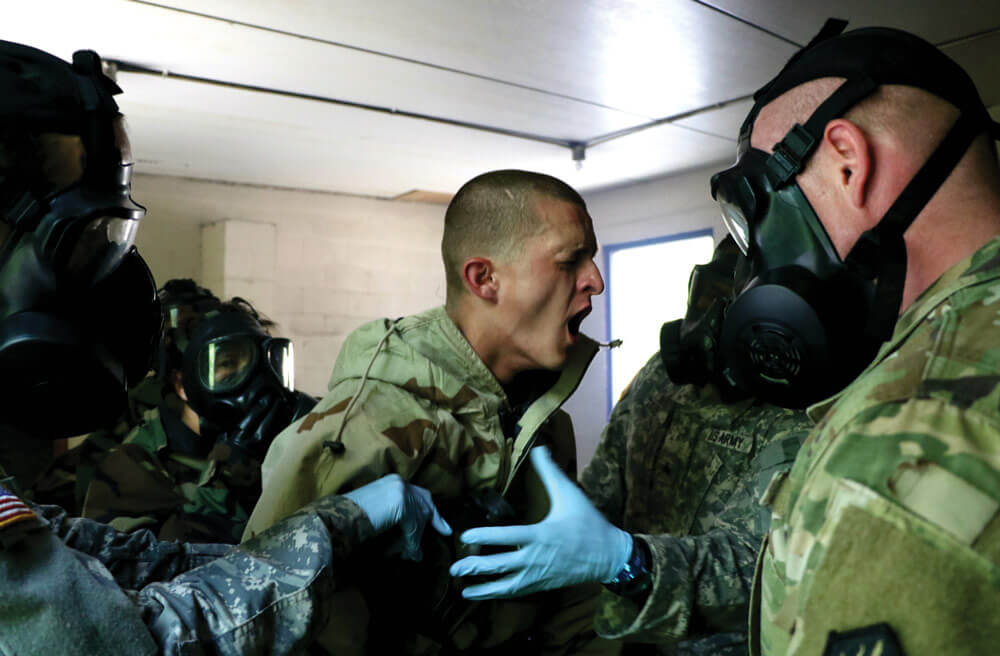
It is a skill a world away from the convenience provided by today’s navigation and GPS technology. For many Cadets, the notion of only using the computer between your ears to get from point A to point B is completely foreign, but they quickly learned to rely on themselves and their fellow Cadets to overcome the challenges they faced in the field.
“This is the foundation for anything we learn in the future,” said Cadet Joseph Cantu from the University of Texas in Rio Grande, Texas. “It’s also something every Soldier should know how to do.”
Basic Camp participants were also exposed to a bit of trial by fire, or in this case, gas. During their four-week experience, Cadets underwent Chemical, Biological, Radiological and Nuclear (CBRN) Threat Training at the CBRN Chamber on post. They were familiarized with the equipment that would protect them from non-lethal, but misery-inducing, gas. They had nine seconds to put the gear on before the gas hit them.
“It kind of felt like you were putting Icy Hot underneath your eyeballs,” said Cadet Braden Hayes of Bravo Company, Third Platoon, from the University of Scranton.
Then the Cadets were required to take off their masks, say their name, where they were from and how many fingers a cadre member was holding up. It gave them a taste of being on the receiving end of a chemical weapon.
“They finally let you go out of the chamber, and your eyes are swollen and you have snot coming out of every pore in your body,” said Cadre member SGT Emmalee Scaff. “It’s insane.”
In the end, Cadets were taken to new heights through their training. Final exercises included ziplining, low crawling, climbing and hanging to conquer their fears. Again, using teamwork, Cadets were able to overcome these climbing-course challenges. A belayer relayed to the climbers where to go to next, what leg to put weight on, what rope to grab. It was preparation for the future, when these young officers-to-be will be responsible for leading Soldiers through dangerous terrain and daunting opposition.
Upon completion of Basic Camp, Cadets found they had been enriched by the experience. They were more familiar with Army life and able to make an informed decision about becoming a commissioned officer in the U.S. Army. For those who passed, it was back to college – looking forward to attending the Advanced Camp next year.
“I definitely feel more confident now as I go back to university and get ready for Advanced Camp [next year].” said Cadet Lindsey Pulverenti from the University of Central Florida. “I haven’t been in ROTC very long so this was my first Army training, but I’m excited to move forward.”
By Staff Writer Matthew Liptak
